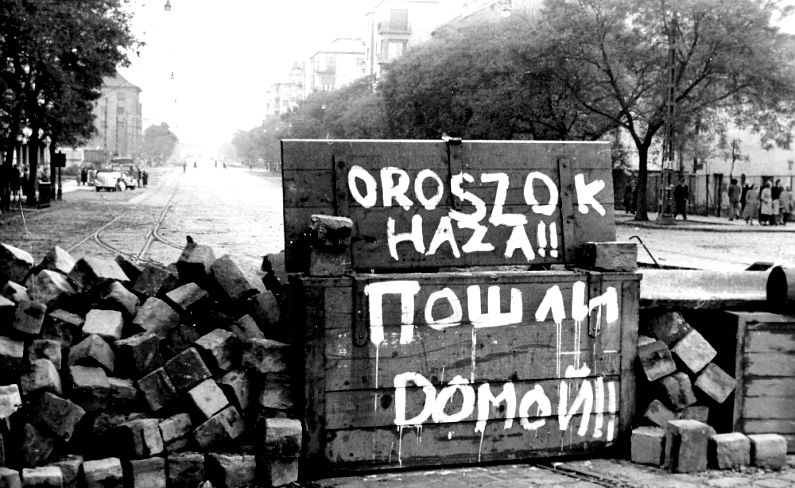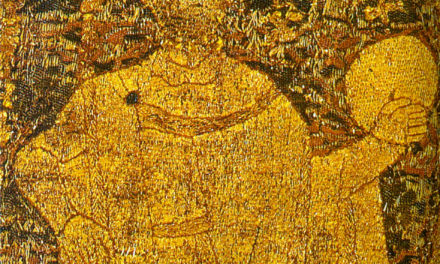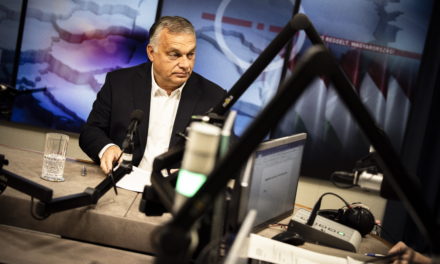In 1945, after the Soviet troops invaded Hungary "courtesy" of the USA, the communists called elections, but because they did not get the desired result, in 1947 they introduced a new ballot for the communist party: the blue ticket. Well, with this blue card, the comrades there and voted as many times as they wanted. In the cities, they went from polling station to polling station, while in the countryside, buses took them from village to village. The desired result was achieved and the communists took power. The lives of the leaders of the traditional parties were made impossible or chased away. Béla Kovács, the chairman of the Small Farmer Party, was deported to the Soviet Union.
The six-year reign of terror marked by the name Mátyás Rákosi During these six years, all the citizens of the country - including the communists - lived in fear, because no one could know when the hand of power would strike. No reason was needed. A suspicious look was enough. Parents did not dare to speak in front of their children, because the child might blurt out what he heard. In families where the children were older, they lived in fear because they could not know which member of the family might have been recruited by the secret service. These six years are called the age of the black Pobeda - car - and the chime phrase. In the early hours of the morning, the black Pobeda stopped in front of the home of the unwanted persons, Rákosi's pribék rang the doorbell of the sleeping family and took away the person they were going for. The lucky ones were released after the interrogation. Others were beaten to death or disappeared forever. It was not advisable to inquire about their whereabouts or what they were doing.
Stalin the bloody tyrant died The Soviet leaders decided to break with Stalinism and lead the Soviet Union by mutual agreement. They will give up arms and make peace with the West. On June 13 and 16, 1953, the Hungarian leaders were sent to Moscow and informed about the elimination of Stalinism. People cannot be dragged or beaten to death without reason. The internment camps must be dissolved, and those who want to farm can leave the cooperatives. They talked about the need to reduce the number of Hungarian defense forces because they are too large. A smaller force is also sufficient, but it must be modernly armed. In this regard, the head of the Soviet KGB, Lavrenti Beria, a remarkable comment: "The Red Army is still in Hungary, but it will not be there forever." It can be read from this that they dealt with the withdrawal of the Red Army from the occupied countries. Imré Nagy was appointed prime minister, but Rákosi was left as the secretary general of the party. I myself vaguely remember the events, but I simply did not take them seriously, because the communists lie. This is also just a political ploy, I thought, which was confirmed by the Voice of Free Europe and America.
In January 1955, Imre Nagy was replaced. Rákosi became the all-powerful lord again. On May 9, West Germany was admitted to NATO! I wonder why, when the Soviets were looking for the possibility of reconciliation? Five days later, Khrushchev responded by establishing the Warsaw Pact. Regardless, German and Hungarian prisoners of war were released from the Soviet Union during the summer, and even political prisoners, such as the aforementioned Béla Kovács . During the fall, West German Chancellor Konrad Adenauer traveled to Moscow for negotiations. Negotiations continued on the withdrawal of the occupying troops from Austria. Austria was divided into four military parts: US, British, French and Soviet interests. The interested parties agreed to withdraw their troops in return for Austria's neutrality, which happened by December of that year.
The XX Congress of the Soviet Communist Party was held in February 1956. Congress. Anastas Mikoyan , a member of the Soviet Central Committee, harshly criticized the Stalinist personality cult, and then Nikita Khrushchev , the party's general secretary, harshly condemned the cruelties of the Stalinist regime and demanded its complete abolition. The speech was made public thirty years later. Hungarian Stalinists like Rákosi and his gang returned home with their heads hanged.
By the summer of 1956, the mood in Hungary had warmed up as a result of the political easing. In order to reduce the tension, the Petőfi Circle was created, which resulted in the exact opposite. Rákosi was harshly criticized at the meetings of the Circle. The speakers were the offended, previously dragged or imprisoned communists. László Rajk said that in 1949 not only was her husband hanged, but she was also separated from her baby. Moscow was forced to replace Rákosi and Ernő Gerő was appointed in his place, which did not help to reduce the tension. The wind of freedom was in the air. During the summer, the technical border lock on the Yugoslav-Hungarian border was dismantled. When they were done with that, they did the same on the Austro-Hungarian border fence - which was completed on September 19 - and they talked on the street about the introduction of a Western-style border crossing between Hungary and Austria, as well as the withdrawal of Soviet troops from our country. All uplifting good news!
On July 13, 1956, Khrushchev reported to the leaders of the allied countries on the developments concerning the socialist camp in a circular letter, in which he stated, among other things, the following: "It is very important for the socialist camp, but especially for the German Democratic Republic, that the two governments, the German Democratic Republic and the Federal Republic of Germany are negotiating the unification of Germany, which would create a very favorable situation in Germany for the democratic forces working for the peaceful and democratic unification of Germany." (A History in Documents. Page 138.) I learned about this only decades later.
This is how we arrived at October 23, 1956. Question: Whose interest was the revolution when everything was going in the right direction? There were a number of events that suggest that not everyone was happy about the eventual withdrawal of Soviet troops, and that everything was done to prevent it. It should be known that communists can be classified into three groups. There were forced communists who joined the party under some kind of compulsion. There were the principled communists who believed in the blessing of Marxism, and there were the Stalinists, the bloodthirsty, merciless tyrants for whom the withdrawal of Soviet troops meant the loss of their power. It is not impossible and there are many signs that they wanted to prevent this by starting a revolution - which was not difficult, because the hatred for the communists and the Soviet Union was deeply embedded in our hearts - but they did not expect what followed. Although they were also swept away by our freedom struggle, its defeat resulted in the rearrangement and further suffering for the Hungarians.
The Stalinists found understanding in the West, just as their successors still receive support from the West today.
Author: Géza Radics
(Cover image: magyarorszag-terkep.hu)













